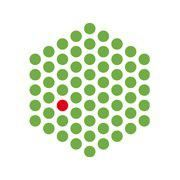 Automated annotation in UniProt
Automated annotation in UniProt
Date: 30 January 2025 @ 09:00 - 17:00
UniProt is a high quality, comprehensive protein resource in which the core activity is the expert review and annotation of proteins where the function has been experimentally investigated. At the same time, the UniProt database contains large numbers of proteins which are predicted to exist from gene models, but which do not have associated experimental evidence indicating their function. UniProt commits significant resources to developing computational methods for functional annotation of these predicted proteins based on the data in entries that have gone through the expert review process.
We will describe the two main automated annotation systems currently in use. First, UniRule, which is an established UniProt system in which curators manually develop rules for annotation. Second, ARBA (Association-Rule-Based Annotator), which is a multi-class learning system which uses rule mining techniques to generate concise annotation models. ARBA employs a data exclusion algorithm that censors data not suitable for computational annotation, and generates human-readable rules for each UniProt release. As part of our interest in engaging with the machine learning community, we will also introduce the contribution of ProtNLM (Protein Natural Language Model), from Google Research, which annotates proteins which have "uncharacterised" names.
We will also introduce UniFIRE, an open source software that enables researchers to annotate their own protein dataset by using the above mentioned annotation systems. In order to provide an easy and straightforward way to download and set up this tool we have containerised UniFIRE together with all its dependencies and the latest set of UniRule and ARBA rules. In this webinar, we will show how to create functional predictions for protein sequences by using this container image.
Keywords: UniProt: The Universal Protein Resource, Proteins (proteins), UniRule, ARBA, Automated annotation
Venue: ,
Organizer: European Bioinformatics Institute (EBI)
Event types:
- Workshops and courses
Scientific topics: Annotation
Activity log

 EMBL-EBI
EMBL-EBI
